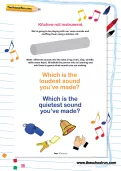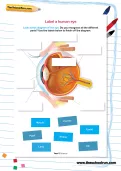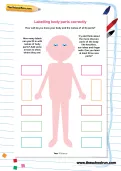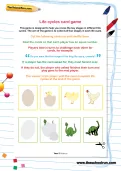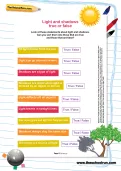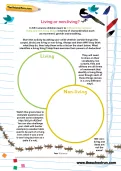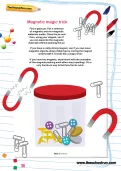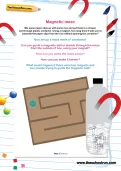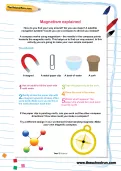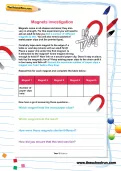Worksheet finder
Search critera
Kitchen-roll instrument
We’re going to be playing with our voice sounds and muffling them using a kitchen roll. Make different sounds into the tube (ring a bell, clap, whistle, rattle some keys). Blindfold the person who is listening and ask them to guess what sounds you are making.
Label a human eye
Look at this diagram of the eye. Do you recognise all the different parts? Use the labels below to finish off the diagram.
Labelling body parts correctly
How many labels can you fill in with names of body parts? Add some arrows to show where they are! Try and think about the more obscure parts of the body. Can you learn at least three new parts?
Life cycles card game
This game is designed to help you revise the key stages in different life cycles. The aim of the game is to collect all four stages in each life cycle.
Light and shadows true or false
Look at these statements about light and shadows. Can you sort them into those that are true and those that are false?
Living or non-living?
In KS1 science children learn to differentiate between living and non-living things in terms of characteristics such as movement, growth and breathing. Identify which things are living and which are non-living, but watch out ... sometimes it's not as obvious as it seems!
Magnetic magic trick
Find a glass jar. Put a selection of magnetic and non-magnetic materials inside. Close the jar and then, using your magnet, see if you can separate the magnetic materials without opening the jar.
Magnetic maze
Mix some paper clips up with some rice and put them in a closed, see-through plastic container. Using a magnet, how long does it take you to separate the paper clips from the rice without opening the container? Now set up a maze made of cardboard. Can you guide a magnetic ball or marble through the maze from the outside of box, using your magnet?
Magnetism explained
How do you find your way around? Do you use maps? A satellite navigation system? Could you use a compass to direct you instead? A compass works using magnetism – the needle in the compass points
towards the magnetic north. This helps us to find our way around. In this activity you are going to make your own simple compass!
towards the magnetic north. This helps us to find our way around. In this activity you are going to make your own simple compass!
Magnets investigation
Magnets come in all shapes and sizes; they also vary in strength. This experiment will test the magnetic force of a variety of different magnets.
